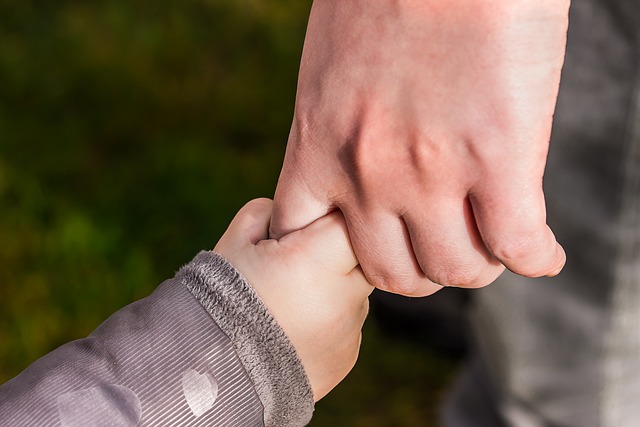The Unyielding Power of Parental Love: A Boundless and Timeless Emotion
Parental love is a mystery that cannot be fully grasped, an emotion that cannot be fully articulated, and a bond that cannot be fully broken. It is a love that defies the tests of time, that weathers every storm, and that endures through every challenge. It is a love that is at once fierce and gentle, strong and vulnerable, and unwavering and unconditional.

-
Increased Love with Age: The study found that as parents grow older, their love for their children intensifies. This increase in love is not limited by physical distance, and parents continue to transmit their love and good wishes to their children even from afar.
-
Loving Gaze as a Pattern of Light: The researchers discovered that the loving gaze of parents creates a pattern of light that has a positive impact on their children’s health and well-being. This pattern of light is thought to be a manifestation of the parents’ love and good intentions.
-
Invisible Rays of Love: The study revealed that parents continue to transmit invisible rays of love and good wishes to their children, even when they are physically separated by thousands of miles. These invisible rays are believed to have a profound impact on children’s emotional and physical well-being.

Parental love is a mystery that cannot be fully grasped, an emotion that cannot be fully articulated, and a bond that cannot be fully broken
-
The role of oxytocin and other neurotransmitters in mediating the effects of parental love
-
The impact of parental love on children’s stress levels and emotional regulation
-
The effects of parental love on children’s physical health, including immune function and disease susceptibility
The Power of Parental Love: An Islamic Perspective
-
“And We have enjoined upon man [to be good] to his parents…” (Quran 29:8)
-
“And your Lord has decreed that you not worship except Him, and to parents, good treatment…” (Quran 17:23)
-
“We have enjoined on man kindness to his parents…” (Quran 46:15)
-
“Be grateful to Me and your parents; to Me is the final destination.” (Quran 31:14)
-
“Paradise is at the feet of mothers.” (Narrated by Ahmad and an-Nasa’i)
-
“A parent is the best of the gates of Paradise; if you wish, you may lose him, or if you wish, you may keep him.” (Narrated by Ibn Majah)
-
“The pleasure of Allah is in the pleasure of the parents, and the displeasure of Allah is in the displeasure of the parents.” (Narrated by Tirmidhi)
-
“Whoever wishes to have his life extended and his provision increased, let him maintain good ties with his relatives.” (Narrated by Bukhari)

The Importance of Obeying Parents
-
“And We have enjoined upon man [to be good] to his parents. His mother carried him, [increasing her] in weakness upon weakness, and his weaning is in two years. Be grateful to Me and your parents; to Me is the final destination.” (Quran 31:14)
-
“Whoever takes care of his parents, Allah will forgive his sins and grant him a high rank in Paradise.” (Narrated by Abu Dawud)
-
“Whoever pleases his parents, Allah will please him, and whoever displeases his parents, Allah will displease him.” (Narrated by Tirmidhi)
The Islamic Concept of “Du’a”

-
“There are three du’a that are accepted [by Allah]: the du’a of the parent for his child…” (Narrated by Abu Dawud and Ibn Majah)
-
Strengthen their children’s emotional and psychological well-being
-
Increase their children’s resilience and ability to cope with challenges
-
Enhance their children’s spiritual growth and development
-
Earn Allah’s pleasure and reward for their kindness and compassion towards their children
The Impact of the Concept of Parental Love on Family Life and Society
Impact on Family Life
-
Stronger Family Bonds: The emphasis on parental love and kindness fosters a sense of closeness and connection among family members, leading to stronger, more resilient family bonds.
-
Improved Communication: When parents demonstrate love, empathy, and understanding, children are more likely to open up and communicate effectively with their parents, reducing conflicts and strengthening relationships.
-
Emotional Intelligence: Children who experience parental love and kindness are more likely to develop emotional intelligence, enabling them to navigate complex social situations and build strong relationships.
-
Role Modeling: Parents who exemplify love, compassion, and kindness serve as positive role models for their children, teaching them valuable life skills and values.
Impact on Society
-
Social Cohesion: When families prioritize love, kindness, and compassion, they contribute to a more harmonious and cohesive society, where individuals feel valued and supported.

Hugging and Embracing
-
Reduced Crime and Violence: Children who experience parental love and kindness are less likely to engage in criminal or violent behaviour, reducing the burden on law enforcement and social services.
-
Improved Mental Health: A society that values and promotes parental love and kindness can expect to see improved mental health outcomes, with reduced rates of anxiety, depression, and other mental health issues.
-
Increased Social Responsibility: When individuals experience love and kindness within their families, they are more likely to extend those values to their communities, contributing to a more compassionate and socially responsible society.
-
Better Education and Personal Development: Children who receive love, support, and encouragement from their parents are more likely to excel academically and personally, contributing to a more educated and skilled workforce.
-
Stronger Community Bonds: The emphasis on parental love and kindness can help foster a sense of community and social connection, as families and individuals work together to support one another.
Challenges and Opportunities
-
Cultural and Socioeconomic Barriers: Some cultures or socioeconomic contexts may not prioritize parental love and kindness, or may face challenges in providing a nurturing environment due to poverty, conflict, or other factors.
-
Personal and Emotional Challenges: Parents may struggle with their own emotional or personal issues, making it difficult to provide the love and kindness their children need.
-
Support Families and Communities: Provide resources, education, and support to help families and communities prioritize parental love and kindness.
-
Foster a Culture of Compassion: Encourage a societal shift towards valuing and promoting love, kindness, and compassion in all aspects of life.
-
Empower Parents and Caregivers: Equip parents and caregivers with the skills, knowledge, and support they need to provide a nurturing environment for their children.
The Islamic concept of parental love has far-reaching implications for family life and society. By embracing and practicing this concept, we can create stronger, more resilient families and communities, and contribute to a more compassionate and harmonious society.
The Importance of Parental Involvement
-
Improved Academic Achievement: Children whose parents are involved in their education tend to perform better academically.
-
Better Social Skills: Children whose parents are involved in their social development tend to have better social skills and relationships.
-
Increased Self-Esteem: Children whose parents are involved in their lives tend to have higher self-esteem and confidence.
The Role of Fathers in Parental Love
-
Improved Cognitive Development: Children whose fathers are involved in their lives tend to have better cognitive development and academic achievement.
-
Better Social Skills: Children whose fathers are involved in their lives tend to have better social skills and relationships.
-
Increased Self-Esteem: Children whose fathers are involved in their lives tend to have higher self-esteem and confidence.
The Impact of Parental Love on Society
-
Become Productive Citizens: Children who experience parental love and support are more likely to become productive citizens, contributing positively to their communities.
-
Develop Emotional Intelligence: Children who experience parental love and support are more likely to develop emotional intelligence, enabling them to navigate complex social situations and build strong relationships.
-
Build Strong Families: Children who experience parental love and support are more likely to build strong families of their own, perpetuating a cycle of love and support.
Challenges and Opportunities
-
Cultural and Socioeconomic Barriers: Some cultures or socioeconomic contexts may not prioritize parental love and kindness, or may face challenges in providing a nurturing environment due to poverty, conflict, or other factors.
-
Personal and Emotional Challenges: Parents may struggle with their own emotional or personal issues, making it difficult to provide the love and kindness their children need.
-
Support Families and Communities: Provide resources, education, and support to help families and communities prioritize parental love and kindness.
-
Foster a Culture of Compassion: Encourage a societal shift towards valuing and promoting love, kindness, and compassion in all aspects of life.
-
Empower Parents and Caregivers: Equip parents and caregivers with the skills, knowledge, and support they need to provide a nurturing environment for their children.
Recommendations for Parents and Caregivers
-
Spend Quality Time with Your Children: Regularly spend quality time with your children, engaging in activities that promote bonding and connection.
-
Show Physical Affection: Show physical affection to your children, such as hugs, kisses, and cuddles, to demonstrate love and affection.
-
Practice Active Listening: Practice active listening with your children, giving them your full attention and validating their feelings and emotions.
-
Foster a Positive Home Environment: Foster a positive home environment that promotes love, kindness, and compassion, and provides a sense of safety and security for your children.
-
Seek Support When Needed: Seek support from family, friends, or professionals when needed, to ensure that you are providing the best possible care and support for your children.
Recommendations for Communities and Societies
-
Promote Parental Education and Support: Promote parental education and support programs that provide resources, education, and support for parents and caregivers.
-
Foster Community Engagement: Foster community engagement and social connections among families and individuals to promote a sense of belonging and support.
-
Develop Family-Friendly Policies: Develop family-friendly policies and programs that support families and promote parental love and kindness.
-
Encourage Volunteerism and Mentorship: Encourage volunteerism and mentorship programs that provide positive role models and support for children and families.
-
Promote Cultural and Socioeconomic Sensitivity: Promote cultural and socioeconomic sensitivity and awareness, to ensure that all families and individuals are supported and included.
Recommendations for Governments and Policymakers
-
Develop and Implement Family-Friendly Policies: Develop and implement policies that support families and promote parental love and kindness, such as paid parental leave, flexible work arrangements, and access to quality childcare.
-
Provide Access to Quality Education and Healthcare: Provide access to quality education and healthcare for all families, regardless of socioeconomic status or background.
-
Support Parental Education and Support Programs: Support parental education and support programs that provide resources, education, and support for parents and caregivers.
-
Encourage Community Engagement and Social Connections: Encourage community engagement and social connections among families and individuals to promote a sense of belonging and support.
-
Promote Cultural and Socioeconomic Sensitivity: Promote cultural and socioeconomic sensitivity and awareness to ensure that all families and individuals are supported and included.
Conclusion
Final Thoughts
References:
-
Quran 29:8
-
Quran 17:23
-
Quran 46:15
-
Quran 31:14
-
Narrated by Ahmad and an-Nasa’i
-
Narrated by Ibn Majah
-
Narrated by Tirmidhi
-
Narrated by Bukhari
دلکش آرر راک 2025 میں دریافت کریں: سندھ کے دل میں ایک پراسرار عجوبہ


